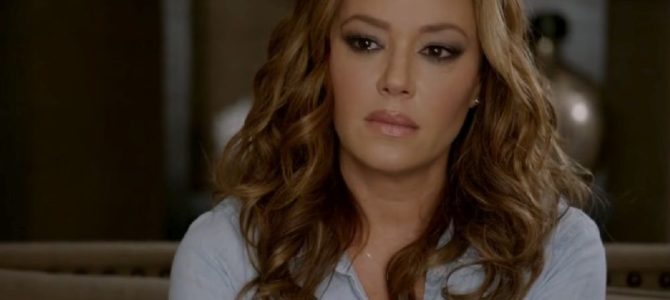This week the second season of Leah Remini’s series exposing Scientology premiered on A&E network. The first season was wildly popular, far more than the network or even Remini and her partner, former Scientology spokesman Mike Rinder, could have imagined. They spent the entire season chronicling the tales of abuse and mistreatment of Scientology members by their “clergy” (I use the term loosely; it’s not actually a church).
When Remini was approached about creating a second season of the show, she insisted on it having a purpose. She didn’t want to just tell the stories of those Scientology has victimized. She had already done that. Remini, who rose to fame as a television star, wanted to do something more with her platform. So this season is about taking action against the organization in a manner that she hopes could take it down.
The Statute of Limitations
The episode opens with Remini and Rinder arriving at a lawyer’s office in hopes they can bring the organization down through extensive and costly litigation. That would cost the group not just money, but also member loyalty, reputation, and even its non-profit status with the Internal Revenue Service, which could prove financially ruinous.
The first episode profiles two women, Saina Kamula and Mirriam Francis. They are best friends who say they were raised in Scientology, victimized in it, and left together.
Kamula and Francis chronicled the sexual and physical abuse they say they have experienced at the hands of Scientologists: Kamula from a teacher affiliated with the organization, and Frances from her father. Kamula says she reported the abuse to her mother and another member of the tight-knit group of professional Scientologists, called the Sea Org, and was rebuffed. At that point, she had no other trusted adults to report the abuse to, so remained silent until adulthood, where its effects began to manifest in panic attacks and psychological distress.
It appears Remini and Rinder purposefully chose to highlight sexual and physical abuse stories of children, in addition to glaring violations of child labor laws, for their second season. Because of the nature of reporting the crimes, laws regarding the abuse of children allow years to lapse before criminal or civil charges can no longer be filed. But there are still limitations.
Laws in California, where Kamula was abused, are unfortunately among the most strict in the country, so because Kamula is over the age of 26, it is unlikely legal action can be taken against her abuser or Scientology. Both women say they notified Scientology officials of the abuse and the organization actually had policies in place to internally handle sexual abuse instead of bringing reports to law enforcement. In 2012, Francis filed a report with the police in Syndey, Australia, where her abuse took place, but charges were never filed. She says her mother refused to submit an affidavit on her behalf upon consultations with members of Scientology.
Pleas for Victims to Come Forward
At the conclusion of the episode, both women met with members of the Los Angeles Police Department, and invited Remini and Rinder to be present. It was left unclear what was said or if any action can be taken on behalf of the women.
If charges cannot be filed in either case, why did Remini and Rinder choose to spend their opening salvo on Kamula and Francis’ stories? Most obviously: They are disturbing and attention-grabbing. To anyone of moral fiber, the tales of child sexual abuse are chilling.
In the opening of the show, the women explain they were inspired to come forward after watching other defectors deliver their testimony during the first season. Who else may be out there whose stories fit within the statute of limitations where their abuse took place? Are Remini and Rinder already in communication with individuals who could bring charges?
Francis implores at the end of the episode of those who may have experienced similar abuse: “We have to do something.” And Remini had her own message for Scientology: “I don’t give up. I’m going to make a career out of exposing this organization.”









